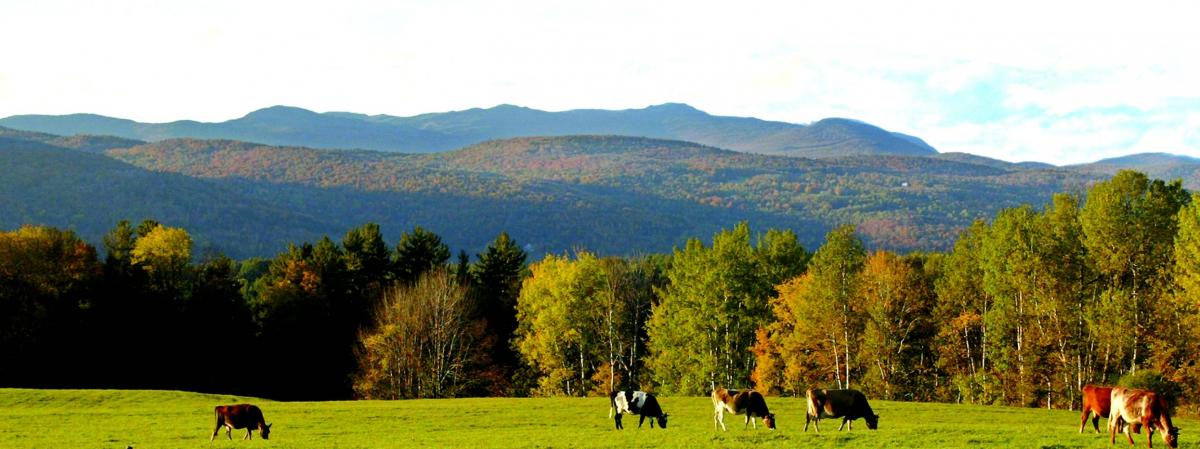Any agricultural operation that meets the threshold of a farm is required to follow the Required Agricultural Practices (RAPs). Depending on the size of the operation, there may be additional requirements, see the table below.
Beginning January 15, 2023, any Vermont farm which withdrew 10,000 gallons or more of surface water within a 24-hour period in the preceding calendar year, or 150,000 gallons or more of surface water over any 30-day period in the preceding year, shall file a report with the Vermont Agency of Agriculture, Food & Markets (VAAFM). More information on surface water withdrawal reporting.
Beginning July 1, 2020, AAFM was directed to regulate the generators or haulers of non-sewage waste who are transporting or arranging for the transport of non-sewage waste to a farm for deposit into a manure pit or for use as an input in a methane digester. Common examples of non-sewage waste include dairy and other food processing waste, brewery or winery waste, wash waters, and food residuals. Generators of non-sewage waste who plan to transfer to a farm for deposit in a manure pit or methane digester, must apply to the Non-sewage Waste Transfer Program and receive approval from AAFM before the waste is transferred. More information on non-sewage waste transfer.
See the table below for more information about requirements that apply to different size farms.
Farm Size |
Certification Requirements |
Nutrient Management Requirements |
Educational Credit Requirements |
|
$2,000+ in Agricultural Sales / Year OR No less than 4.0 Contiguous Acres OR Filed a 1040(F) income tax statement (in at least one of the past two years) |
None | None | |
|
Certified Small Farm Operations 50-199 Dairy Cows OR 75-299 Cattle OR 750-2,999 Sheep or Goats OR 50+ Acres Annual Crops OR |
4 hours per 5 years | ||
|
200-699 Dairy Cows OR 300-999 Youngstock/Heifers/Veal/Cattle
|
4 hours per 5 years | ||
|
700+ Dairy Cows |
4 hours per 5 years |
||
| Keep Records of Nutrient Applications | 8 hours per 5 years |
Important Dates for Agricultural Water Quality Regulations
|
Custom Manure & Ag Waste Applicator Certification |
January 31 |
Custom Applicators are required to renew their annual certification and pay an annual fee by January 31 of each year. Exams are required every 5 years. Applicators who are seeking certification should contact the VAAFM. |
|
CSFO Annual Certification |
January 31 |
Farming operations that meet the threshold of a Certified Small Farm Operation are required to self-certify their operation with the Agency of Agriculture annually by January 31. |
|
LFO Annual Reporting and Fee |
February 15 |
Farming operations within the threshold of a Large Farm must submit their annual compliance report and operating fee before February 15 of each year. |
|
MFO Annual Reporting and Fee |
April 30 |
Farming operations within the threshold of a Medium Farm must submit their annual compliance report and operating fee by April 30 of each year. |
|
Cover Cropping of Floodplains |
October 1-15 |
Annually, fields need to be broadcast seeded by October 1, and drilled or otherwise incorporated by October 15. Requirements for cover crop establishment on frequently flooded areas of annual crop field begin in the Fall of 2017. |
|
Extended Winter Spreading Ban on Floodplains |
October 16-April 14 |
The extended winter manure spreading ban for frequently flooded areas of annual crop fields will take place from October to April beginning October 16, 2017. |
|
Winter Manure Spreading Ban |
December 15-April 1 |
This winter manure spreading ban has been in place since 1995 and prohibits spreading of manure or other agricultural wastes during the winter season. There are exemptions for emergency and non-emergency situations, call (802) 828-2431. |

